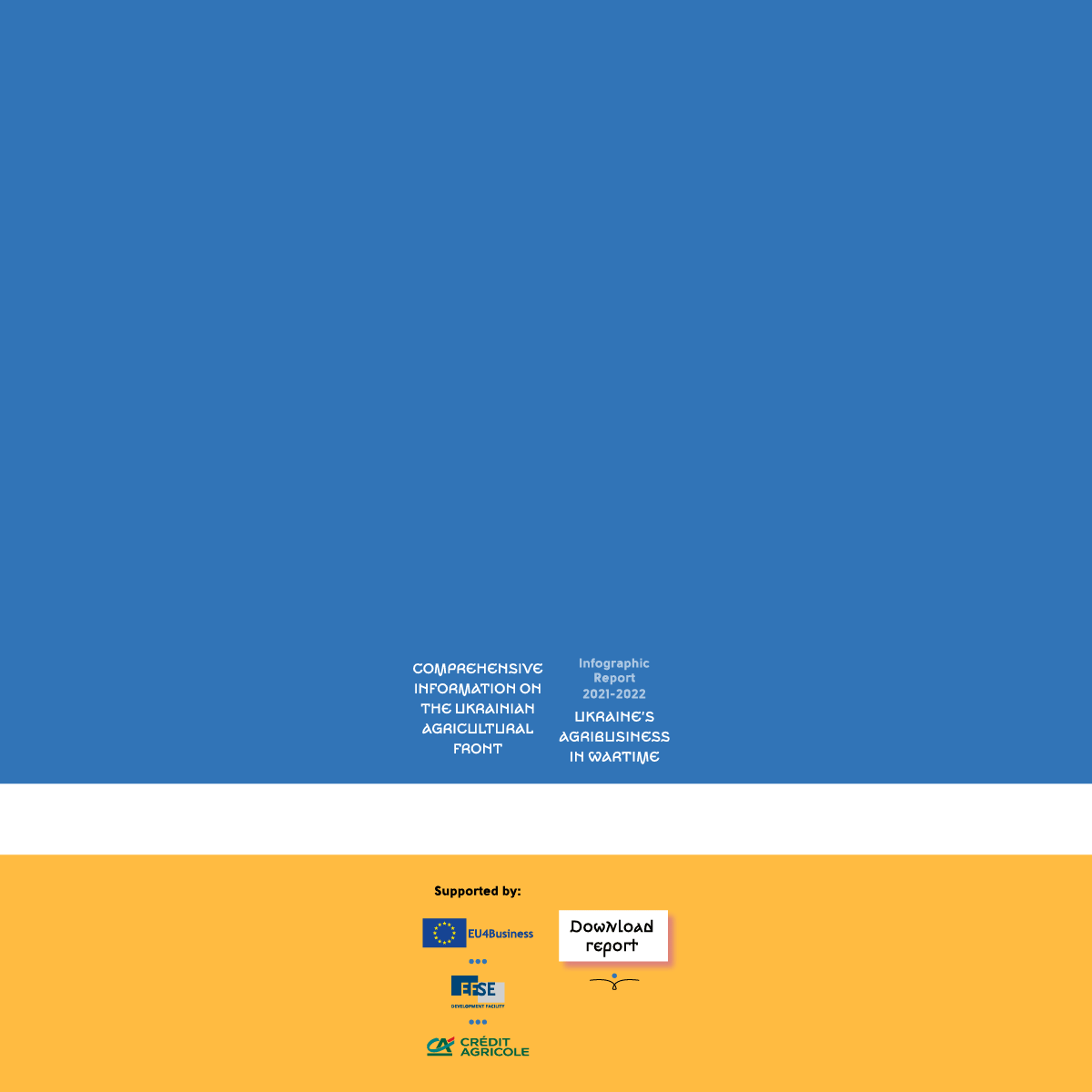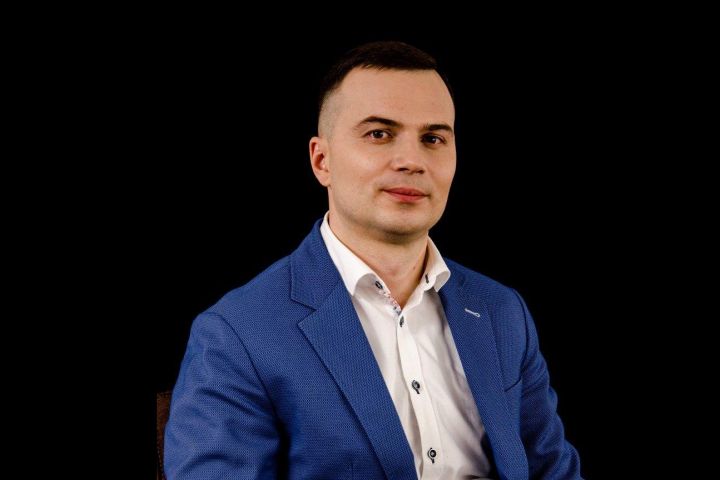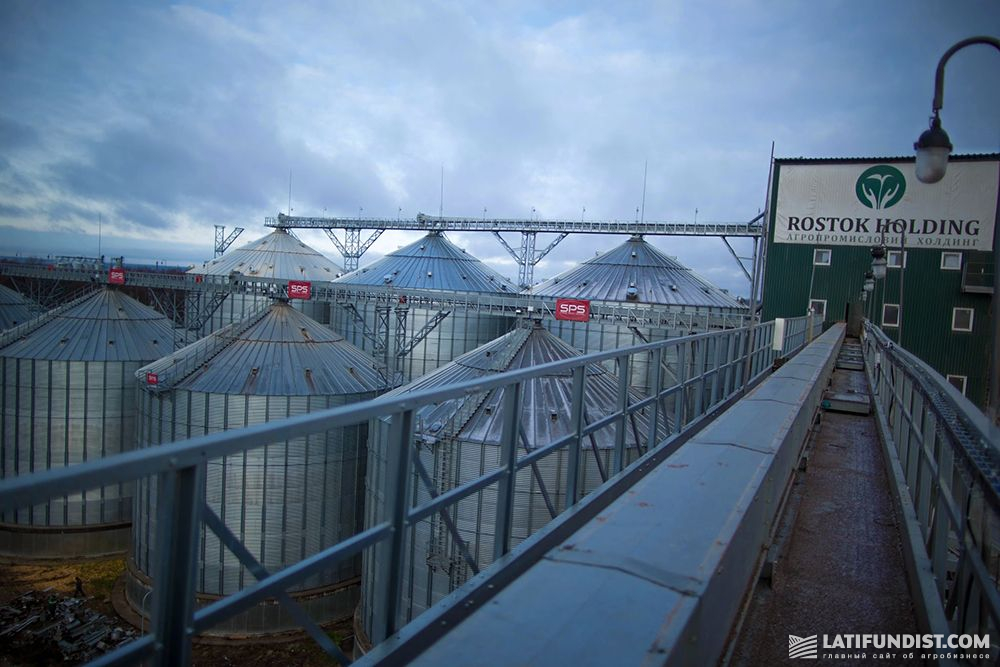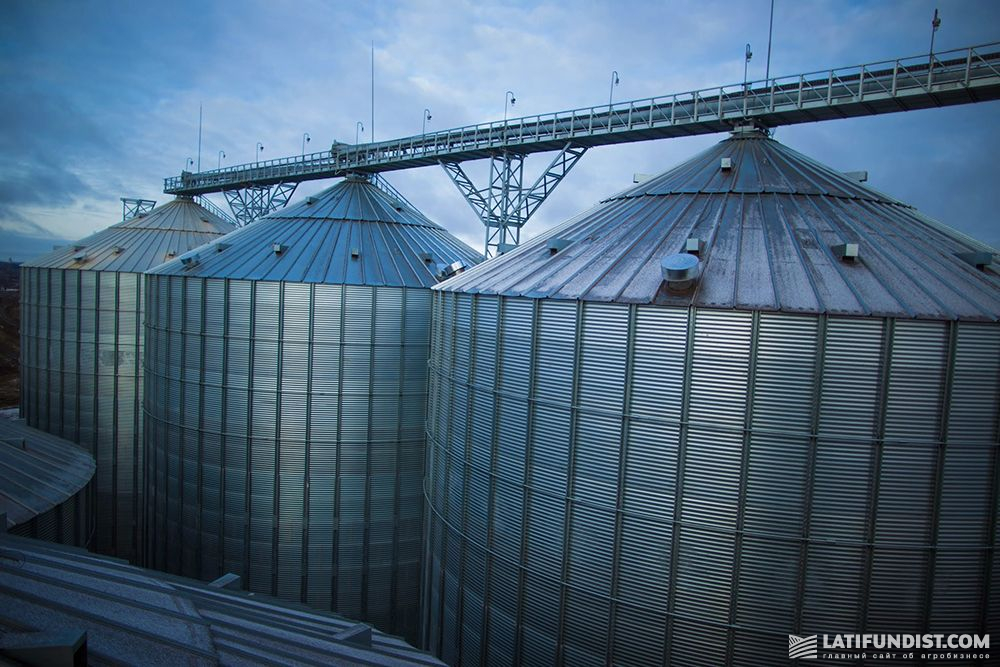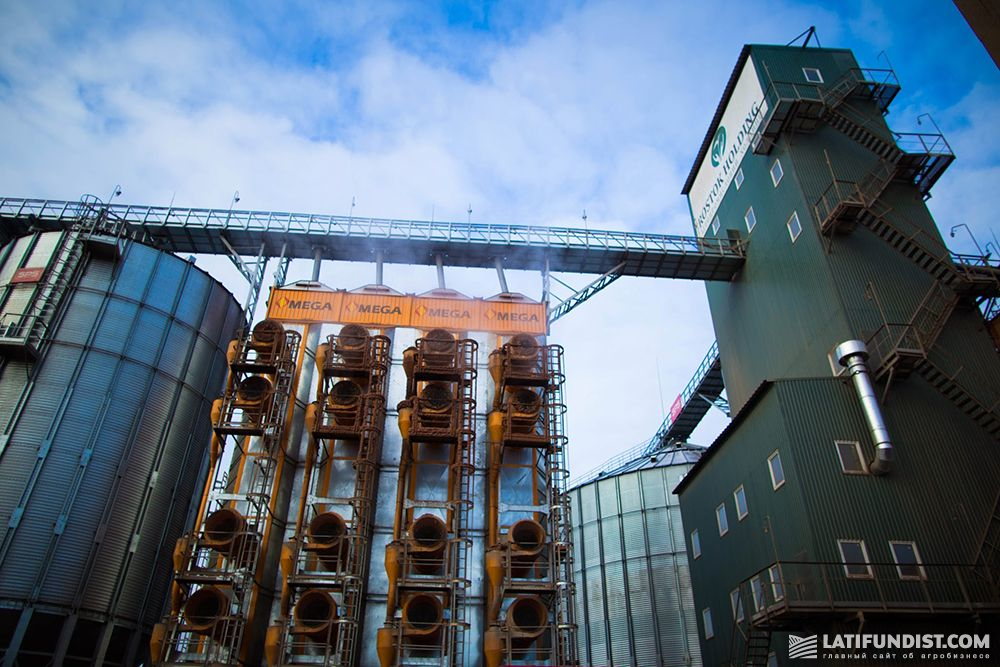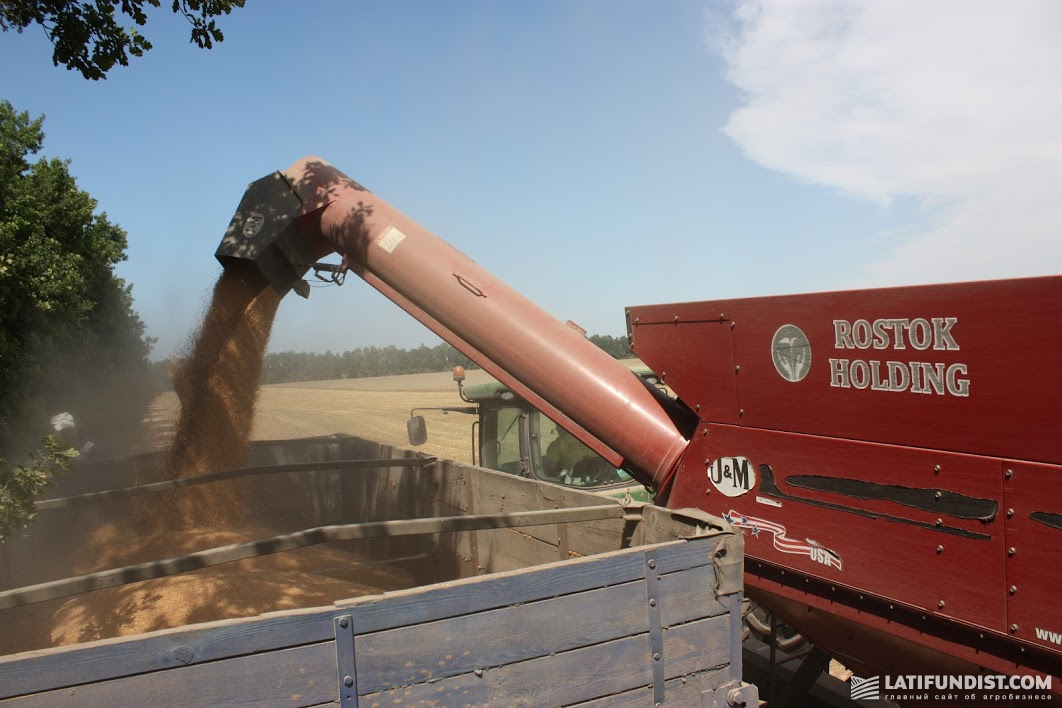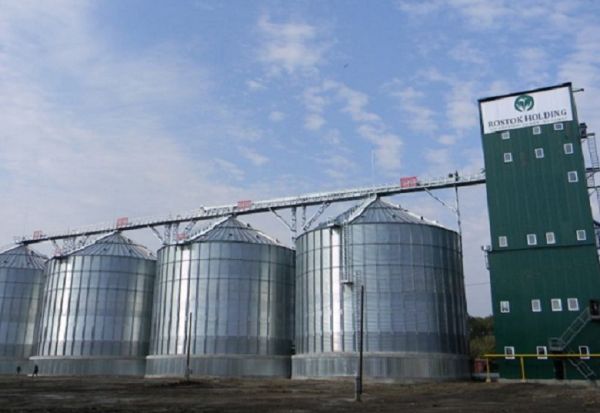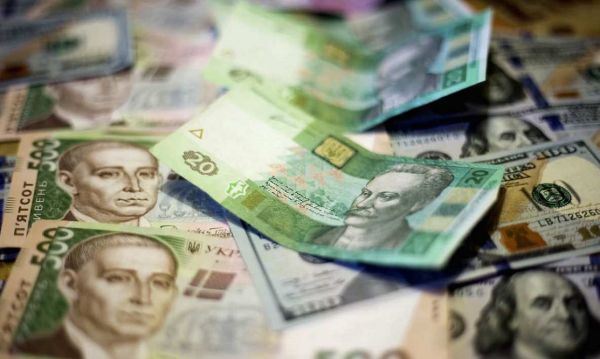To learn more about agribusiness in Ukraine, follow us on Facebook, on our channel in Telegram, and subscribe to our newsletter.
ROSTOK-HOLDING CEO on Assets Conflict Resolution and Risks in Agribusiness
A deep conflict, which has been going on over ROSTOK-HOLDING since 2018, has been resolved. In an interview with Latifundist.com, CEO Andrii Shvab told about the compromise reached by the conflicting parties, how the company's assets have changed in the result and how the owners see its future development.
Latifundist.com: In April it became known that the conflict over ROSTOK-HOLDING had been resolved. When did the parties come to a compromise and strike the deal?
Andrii Shvab: Active dialogue on conflict settlement was initiated by the parties in March 2019. In May, the first stage of negotiations was completed, during which a compromise was reached. At that time, a part of the settlement documents was signed. However, the final stage of the settlement was completed early this year.
Latifundist.com: How have the company's assets and the structure of beneficiaries changed as a result?
Andrii Shvab: Today the beneficiaries of the holding are Viktor Kupavtsev and Yakov Gribov. Each of them has 49.9% shares. Viktor Kyianovskyi, who owned 30% of shares before the conflict, withdrew from the beneficiaries — he has 2 shares left. A part of agricultural enterprises of Ichnya district of Chernihiv region with a land bank of about 11.3 thou. ha was allotted in his favour.
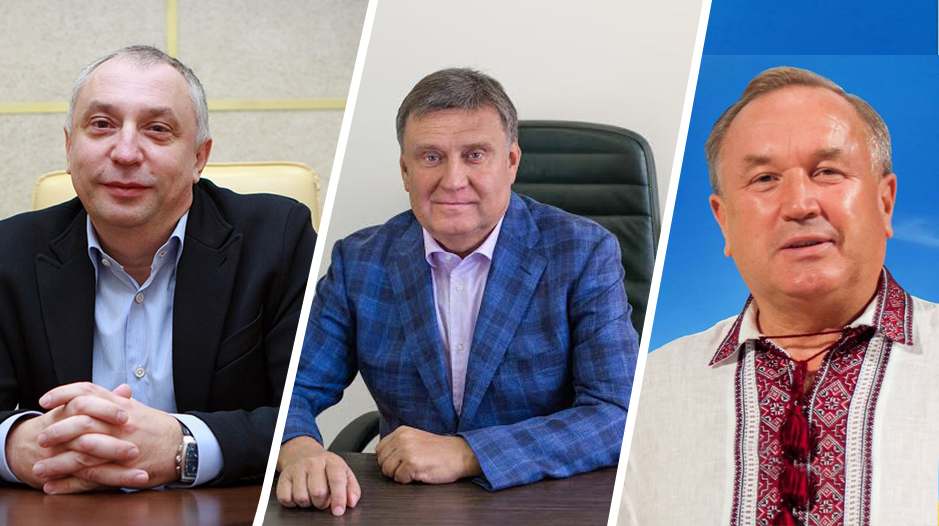
We also disposed of the company Yampil-Invest managing a land bank of 12.5 thou. ha, which had complicated logistics. As a result of such restructuring, we have 37.4 thou. ha of farmland left under our management. Of these, 35 thou. ha are cultivated, while the remaining lands are fallow and forest.
Latifundist.com: In other words, Yakov Gribov's joining the Board of Shareholders began in May 2019?
Andrii Shvab: Yes, the process of his joining the beneficiaries of the company began in May last year.
Latifundist.com: Was everything limited to being a shareholder or were there any extra conditions?
Andrii Shvab: Whenever two conflicting parties sit down to the negotiating table, various options for conflict resolution are considered. In our case, we agreed on the best option: the inclusion of Yakov Gribov as a beneficiary and settlement of issues with all creditors.
Latifundist.com: What is your role in the company. You are a CEO but you are not a newcomer to the company.
Andrii Shvab: I have been working for the company since its establishment in 2009. I made my way from a lawyer of a trading company to a corporate director at the time of the conflict. It so happened that I initiated a dialogue between the conflicting parties. It was necessary for the company to be preserved and we came out of this situation.

None needs conflicts as they bring problems and incur losses on both sides. Only those providing legal services make money from conflicts. Therefore, the sooner the parties sit down to the negotiating table, the cheaper it will cost them.
It seems to me that I did my best to make sure that these negotiations happen. It is good that the parties had the wisdom to bring the dialogue to a conclusion. A consensus was reached as a result. First, the composition of the beneficiaries of the Group changed. Secondly, I am a CEO who is neutral in his advocacy for all parties to feel comfortable and to move towards a logical conclusion of the contentious issues. Lastly, the company and the beneficiaries are looking to the future with confidence.
Latifundist.com: When the Asset Recovery and Management Agency (ARMA) got involved in the conflict and temporary managers were identified in the competition, was their task only in current management back then? Because at some point there were risks and fears that grain could have been sold from elevators...
Andrii Shvab: Since the very beginning of the conflict, we acted within the legal field. We hired a group of lawyers and together with them we analyzed every court decision to seize assets and grain. At that time those decisions allowed us to legally sell grain to ensure the economic activity of the company — to pay loans, salaries, etc. The real seizure of grain occurred by the end of 2018. At the same time, ARMA received the corporate rights and real estate of the company.
When ARMA came in, we failed to come to a common ground for a while. Then came the realization that killing the business is stupid and wrong. We need to find solutions that will allow the business to live and perform economic activities. From that moment on, we started agreed grain sales. That is why, in my opinion, there was no need for ARMA to participate in the seizure of grain and assets. But it just so happened that it got involved.
At some point, we found a solution to manage the company together because they could do nothing without us. It is one thing to manage real estate, we know plenty of such examples, and another thing is managing an agricultural holding with thousands of employees, large volumes of grain, sales, sowing, harvesting. It is a very complex thing. If one simply appoints directors, there will be no result. People in the field were subordinated to the beneficiaries and the management of the central office. And the acting people from ARMA had authority but without real management. All this led to business disruption. So we understood that we had to negotiate with managers, make decisions, even if someone did not like them. However, these decisions will help stabilize the situation and pull the business out of stagnation.
Latifundist.com: The parties initiated numerous litigations, including those involving ARMA. Are they all halted at the moment?
Andrii Shvab: Yes. All courts have been cancelled.
Latifundist.com: You have mentioned the restructuring of financial liabilities. In 2018, the company partnered with a number of banks. What debt burden does the company have? Or are there other creditors involved?
Andrii Shvab: In 2017, we had about USD 26 mln in credit load. Most of the liabilities have been repaid, and now the debt burden is USD 14.5-15 mln. Of course, during the conflict, we were unable to properly service bank loans, and almost all banks sold their liabilities to a factoring company.
Latifundist.com: Pivdenny Bank was the first to do so, wasn't it?
Andrii Shvab: We were in continuous dialogues with banks and informed them about the development of events in the company. We tried to convince them to bear a difficult period because we understood that it cannot be forever. However, not all banks could afford to wait long, so we started selling debts. They had a difficult choice, so we took it with understanding. Indeed, Pivdenny was the first to sell his debt. Later on, other banks did so, except ProCredit Bank.
In the process of settling all issues related to the conflict, we also agreed with the factoring company on the restructuring of obligations. Part of the debt has been repaid. We are looking for financial borrowings to ensure repayment of obligations to the factoring company. We continue working with ProCredit Bank, which has remained with us all this time and believed in us, which we are very grateful for. Nevertheless, our credit burden is quite bearable, we can work smoothly without worrying about it.
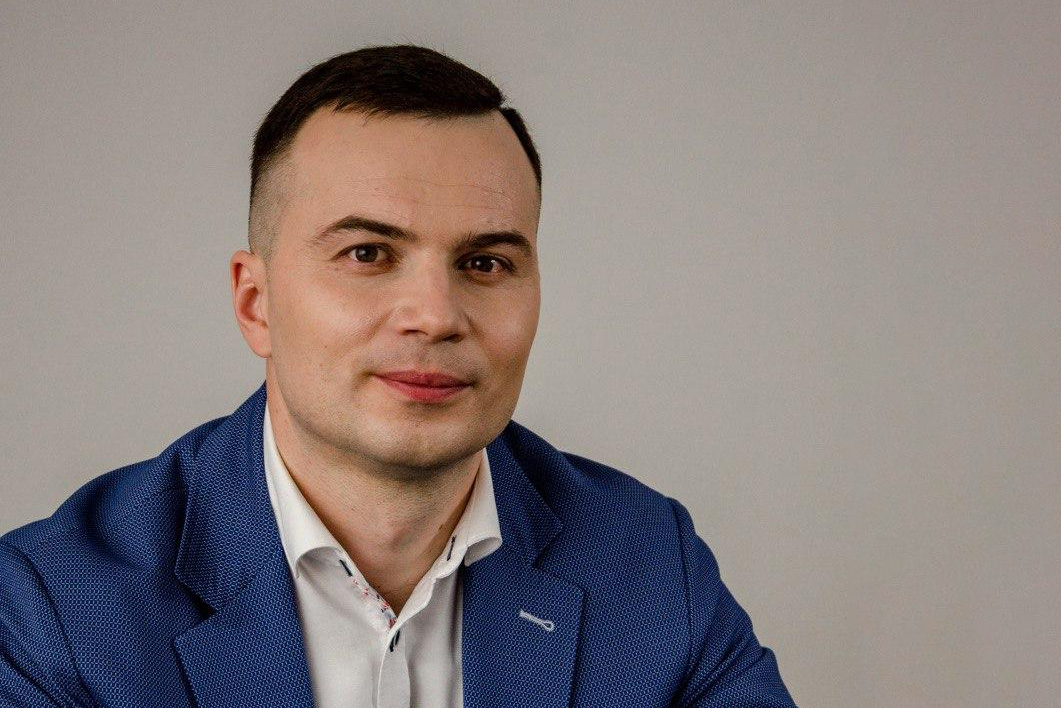
Latifundist.com: How were the employees affected by the optimization of the holding company?
Andrii Shvab: Even during the period of external management conducted by ARMA, the staff of the central office was cut. Now we have increased it. As for the staff in branches, the dismissals have barely affected them.

We do not plan restructuring in the near future, so no personnel layoffs are expected. Everything is stable. We hope it will continue to be so.
Latifundist.com: Do you consider selling the company, or see its development in the current configuration?
Andrii Shvab: The shareholders are set to develop the company. It is for this reason that today restructuring and recovery of those assets that are more profitable is underway. Of course, any business can be sold depending on market conditions, will and options. Hence, shareholders can consider proposals for sale. We have our own price vision. But so far we are not rushed into this issue.
Latifundist.com: How much is the company with all its assets? What is the approximate value of one hectare of farmland in the territories you operate?
Andrii Shvab: We are in touch with various market players, including investment banks. In today's conditions, the purchase of land costs 1-1.3 thou. USD/ha. Storage at the grain elevator costs 150 USD/t. The equipment is estimated depending on its wear and tear. And, of course, it is necessary to take into account investments into the future harvest.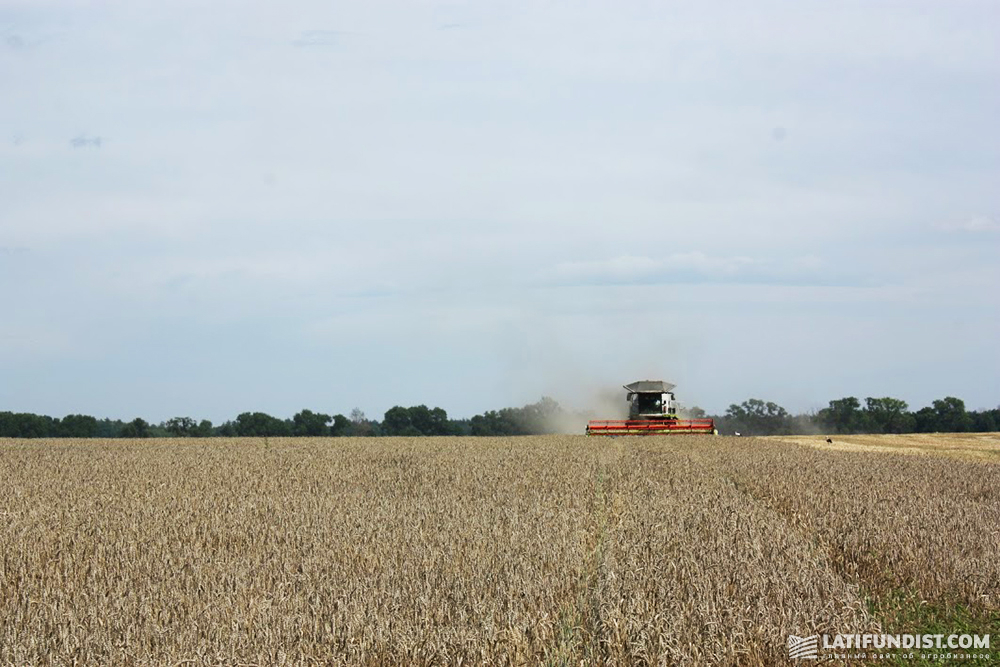
Latifundist.com: Based on your experience, how active is the market today? Or has everyone taken еhe wait-and-see approach until 2021?
Andrii Shvab: Let us put it as before and after the coronavirus. Before the pandemic began, the market was interested in buying assets. Our case with the sale of Yampil-Invest is a vivid example of this. The question was only about the price and land quality. Previously, investors looked more at Poltava, Cherkasy and other central regions. Now we hear our colleagues complain about drought and moisture deficit. We believe that in this respect we are quite interesting for the market, as our farmland is in the north of the country, where there are favourable climatic conditions and sufficient moisture. And the latter today is a crucial factor in the purchase of land.

As my colleague says: "Today, everyone has technologies, but not all of us have enough moisture for today's volumes. And if your lands have it available, you are very competitive."
With regard to after the coronavirus, it is hard to foresee anything. On the one hand, the agricultural sector seems to be doing well. We had a mild winter, the sowing campaign was completed, agronomists were happy to put the grain in good soil: warm and moderately humid. It has rained, so the forecasts are very optimistic.
Another thing is that the foreign market has a strong influence on us, including the low cost of fuel, oil and, consequently, grain. Corn, which is used in ethanol production, accounts for the lion's share of exports. But ethanol is not in demand now as the price for oil collapsed. All this cannot but affect the market. But we will see how this situation develops in the future. It is difficult to make forecasts now. In my opinion, the demand for agricultural products has always been and will always be.
Latifundist.com: Does the company have a strategy for the next three years? Dropping the agricultural production and focusing on elevator infrastructure for instance.
Andrii Shvab: No, we have a closed production cycle. We do not divide the elevator business from agricultural production — these businesses are interconnected. This year we plan to invest USD 2 mln in Glukhiv elevator, adding grain bins with a total storage capacity of 27 thou. t. Thus, by mid-autumn 2020 the capacity of Glukhiv elevator will reach 73 thou. t. That is, we have a positive view of the future.

Again, perhaps in the future, we will sell the business. And perhaps it will not be a net sale, but the attraction of investors with the possibility of buying land. But we do not have those plans yet.
Latifundist.com: Glukhiv elevator is a route facility. Are there problems with rail transportation?
Andrii Shvab: There is good access to the railway. There should be no problems with transportation. There are peaks when it is difficult to contract railcars, but recently there were no such problems: we could contract the required number of railcars.
Latifundist.com: The second elevator in Novgorod-Severskyi is in the far north. What's the logistics situation there now?
Andrii Shvab: The elevator serves the company's production. I think that if one has no elevator, it is difficult to receive a normal price, as it is impossible to sell the produced grain. It's expensive to keep it with third parties: the cost increases significantly. Besides, one may fail to get in, since autumn is the peak load of elevators. If your colleagues or competitors have their own grain elevators, they will load it with their own grain, and you will have no other option but to wait for the opportunity to store your grain there. Therefore, an elevator is more of a strategic object, essential for storing your grain there, drying it and keeping it for sale at a good price.
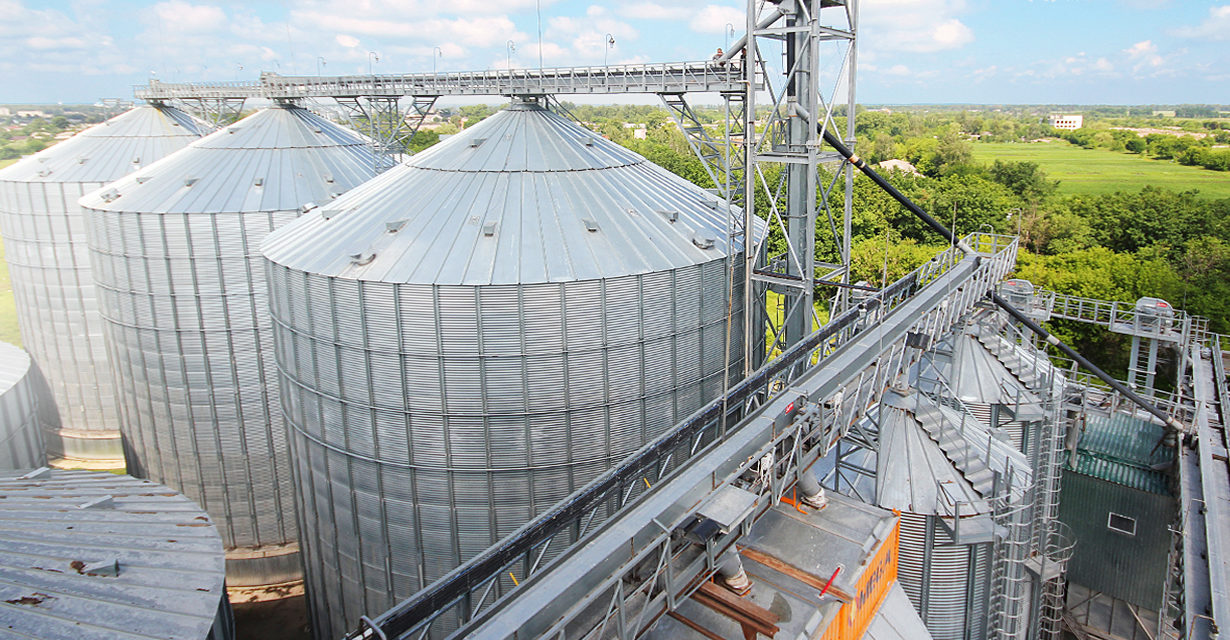
Undoubtedly, logistics is of great importance in elevator operation. It is a bit worse at our elevator because we are far from the ports. But we are building our sales strategy to get the maximum margins. For example, we now have contracts with the Baltic States. It is closer, it is convenient and it is quite adequate in price. It is a little cheaper than in other countries, but we get a better price owing to logistics.
Latifundist.com: Are you planning to invest exclusively in the elevator business this year? The company owned farms. Are they still functioning?
Andrii Shvab: Since we need to service our debt obligations, we plan to invest only in the elevator for now. Such investments seem reasonable to us, given the fact that the company was stressed and it needs to develop.
We still have farms. Most of them no longer belong to ROSTOK-HOLDING as a result of the transfer of Ichnya district enterprises to Viktor Kyianovskyi. But there are still farms in other production branches, they operate as usual.
Latifundist.com: Are the company's lands arranged compactly or there is a certain scattering?
Andrii Shvab: We tried to restructure the assets so that we would preserve only those lands near the elevators. Thus, we will be able to save on logistics and efficiently run sowing and harvesting campaigns. We have two clusters — Chernihiv region, Novgorod-Severskyi district, where several enterprises and an elevator are located, and Sumy Region, Glukhiv district, where enterprises are concentrated close to one another and near the elevator.
Latifundist.com: Has the company's cropping plan changed?
Andrii Shvab: No, it has not changed: 50% is corn, the rest is wheat, barley and sunflower.
Latifundist.com: The company had quite a powerful trading business. Do you sell only the harvest or you act as a local trader?
Andrii Shvab: Indeed, in 2010-13 we had a rather powerful trading business. We handled up to 1 mln t and most of it was sold on FOB. But the price was different then. After a while, the price fell, and the profit with it. The risks increased, especially on FOB. As far as I remember, it was necessary to have quotas in ports. All this led to the trading business's unprofitablility. We focused on growing and selling our grains. So today we produce and sell only our grain. Sometimes we buy if there are contracts that need to be fulfilled, and our harvest is either not ready or of another quality.

Broadly speaking, I wouldn't risk focusing exclusively on the trading business. There are high risks and a small margin. There are other businesses, more profitable and less risky.
Latifundist.com: What is ROSTOK-HOLDING's sales strategy?
Andrii Shvab: This year, one-third of the harvest (corn and wheat) was sold under forward contracts and at very good prices. We use such an instrument as exchange trading to hedge our risks and feel the market. But even though it is difficult to predict the prices. The market is quite volatile due to a number of factors, including the coronavirus. We'll see what happens in the future.
Latifundist.com: Thank you for a straight talk!
Konstantin Tkachenko, Natalia Rodak, Latifundist.com
